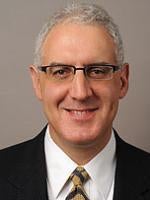Businesses that give or receive “additional insured” endorsements may want to learn about a recent decision from the New York Court of Appeals.
Imagine this hypothetical scenario: Maxwell LLC hires Smart Corporation to do some excavation on Maxwell’s property. As required by their contract, Smart buys a commercial general liability (CGL) policy from Chaos Insurance Company with a standard endorsement saying that Maxwell is an additional insured with respect to injury or damage “caused, in whole or in part” by Smart’s acts or omissions. Maxwell doesn’t tell Smart that an electrical cable is buried in the excavation area, and Maxwell doesn’t turn the power off. Smart hits the live cable, and the ensuing explosion damages a nearby building owned by Control, Inc. Control sues Maxwell and Smart, both of which tender the case to Chaos. Chaos accepts coverage for its policyholder, Smart, but denies that Maxwell is an additional insured for this claim.
Wait, what? Smart got the endorsement making Maxwell an additional insured, and the explosion was obviously caused, at least in part, by Smart hitting the electrical cable. So how can Chaos deny coverage?
Recently, in Burlington Insurance Co. v. NYC Transit Authority, an additional insured coverage decision under New York law, the court construed the phrase “caused, in whole or in part” as requiring proximate (or legal) causation rather than “but for” causation. In our hypothetical, which is loosely based on the facts in Burlington, the explosion obviously would not have happened but for Smart hitting the electrical cable. An insurance company, seeking to apply New York law or get another state to adopt the same reasoning, might assert that Smart did nothing wrong. That insurance company might further argue the sole proximate cause was Maxwell’s negligence in failing to identify the electrical cable for Smart and failing to turn off the power before Smart excavated. The insurance company might thereby contend that Maxwell is not an additional insured under the Chaos policy because Smart did not proximately cause the loss.
Given that many companies in both Maxwell’s and Smart’s positions often intend the additional insured coverage to be broad, there are at least two lessons here:
- Even outside of New York, insurance companies are likely to deny additional insured coverage when the policyholder that purchased the policy arguably did not proximately cause the loss. Courts outside of New York do not necessarily follow New York law, and, indeed, there are numerous instances in which other courts have disagreed with New York law (or the interpretation of New York law pressed by insurance companies). The putative additional insured may consider whether to litigate an insurance company’s denial if the applicable jurisdiction will apply its own law and rely on the broader “but for” causation standard for additional insured coverage. After all, Smart obviously got sued even though it did nothing wrong. Smart likely wanted additional insured coverage so Maxwell’s insurance company would pay for an ultimately successful defense against the lawsuit filed by Control.
- There are dozens of additional insured endorsement forms used by various insurance companies. Businesses that contract to either give or receive additional insured coverage may find it useful to learn about the variety of forms and consider which ones may be more suitable to their needs. In some circumstances, it may be possible to negotiate with an insurance company for a non-standard endorsement to provide broader additional insured coverage.
Get smart about additional insured endorsements.




 />i
/>i

